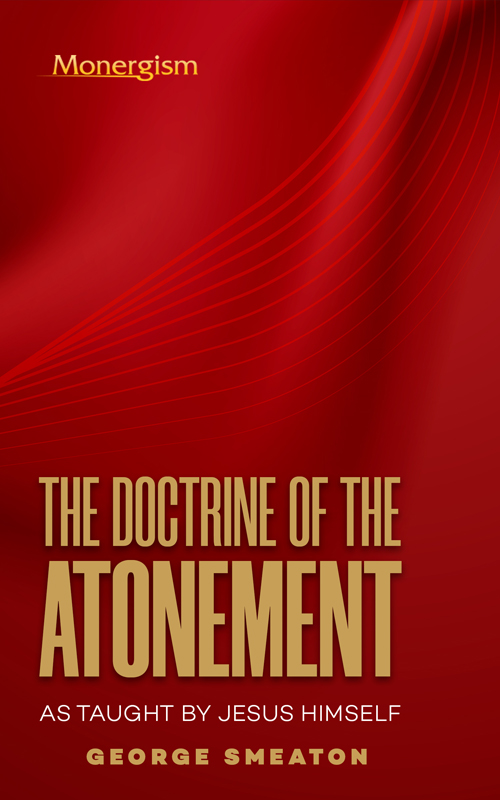Resisting the Holy Spirit
 An argument frequently made against the biblical doctrine of irresistible grace is an appeal to Acts 7:51 which declares “You stiff-necked people, uncircumcised in heart and ears, you always resist the Holy Spirit. As your fathers did, so do you."
An argument frequently made against the biblical doctrine of irresistible grace is an appeal to Acts 7:51 which declares “You stiff-necked people, uncircumcised in heart and ears, you always resist the Holy Spirit. As your fathers did, so do you."
It should be noted, however, that the very text here cited by some to demonstrate that grace is resistible contains the very language that makes a decisive argument against their own position. Indeed these persons Stephen is directing the comments toward are resisting the Holy Spirit, but look closely... the Text declares that their heart and ears are "uncircumcised". In the Old Testament this is commonly used language used for regeneration (See Deut 29:4, 30:6 & Ezek 36:26) so being unregenerate, to resist every outward working of the Spirit, is simply acting in accordance with their natures.
People always resist the outward call of the gospel.. ALWAYS, until God chooses to open their eyes, ears and heart to the gospel. That is called circumcision of heart, the new birth or regeneration. The work of the Holy Spirit is manifold, regeneration being only one aspect of redemption ... The Bible declares that He may convict the unregenerate of certain sin and do many things short of regenerating grace. Anything short of regeneration CAN and WILL BE be resisted.
Question: "Circumcise therefore the foreskin of your heart, and be no longer stubborn." Deut. 10:16 --> If God commands the Israelites to circumcise their own hearts in this verse and in Jer. 4:4, how can we reconcile these two verses with monergistic principles?
Answer: Good question.

 I have not historically spent much time, if any, obsessing on the various sexual liberation agendas in our culture. But it has come to my attention that perhaps the most troubled and confused people in our current society are those who accuse Christians of hate speech and homophobia for simply wanting to share the gospel with them. Such groundless declarations of hate betray the speakers themselves as a people driven by irrational prejudice. In doing so they are creating a poisoned cultural, educational and political atmosphere which they teach others to hate Christians for something they don't even believe, nor has it crossed our mind .... since no true Christian believes he/she morally better and many of us have committed much worse sins. We are here to proclaim freedom to those enslaved, ourselves included. It is mercy alone which saved us, and certainly not any good in us.
I have not historically spent much time, if any, obsessing on the various sexual liberation agendas in our culture. But it has come to my attention that perhaps the most troubled and confused people in our current society are those who accuse Christians of hate speech and homophobia for simply wanting to share the gospel with them. Such groundless declarations of hate betray the speakers themselves as a people driven by irrational prejudice. In doing so they are creating a poisoned cultural, educational and political atmosphere which they teach others to hate Christians for something they don't even believe, nor has it crossed our mind .... since no true Christian believes he/she morally better and many of us have committed much worse sins. We are here to proclaim freedom to those enslaved, ourselves included. It is mercy alone which saved us, and certainly not any good in us. At the fall, we changed, God didn't. By nature God is holy so He cannot become less-than-holy and still remain God. Even in our fallen state, God gives us commands to live in perfect holiness if we would live. For example, He calls us to love him with all our heart, mind, soul and strength, yet this is an impossible supposition for fallen man - but, notice, this does not stop God from commanding us to do so. Why? Paul says the purpose of the Law for lost men and women is not to reveal their moral ability but their inability... "Through the law comes knowledge of sin."(Rom 3:19, 20) Thus, when God humbles us through His law, we see our utter spiritual bankruptcy ... that there is absolutely no hope left in ourselves, and God does this to make room for the gospel, since in our helpess state, it becomes obvious that the mercy of God in Christ can ALONE save us.
At the fall, we changed, God didn't. By nature God is holy so He cannot become less-than-holy and still remain God. Even in our fallen state, God gives us commands to live in perfect holiness if we would live. For example, He calls us to love him with all our heart, mind, soul and strength, yet this is an impossible supposition for fallen man - but, notice, this does not stop God from commanding us to do so. Why? Paul says the purpose of the Law for lost men and women is not to reveal their moral ability but their inability... "Through the law comes knowledge of sin."(Rom 3:19, 20) Thus, when God humbles us through His law, we see our utter spiritual bankruptcy ... that there is absolutely no hope left in ourselves, and God does this to make room for the gospel, since in our helpess state, it becomes obvious that the mercy of God in Christ can ALONE save us. Many Christians will (reluctantly) acknowledge that there indeed do appear to be passages in the Bible, especially in the Gospel of John and the the theology of the Pauline epistles which strongly suggest that salvation is by grace alone, apart from the will or effort or cooperation of man (John 6:63, 65, 37; Rom 9:15, 16). However these same individuals will then quickly point out the "many" passages which give the appearance of teaching the free will of man to believe and follow Christ, apart from such grace. For example they appeal to passages in the Bible which say "if you are willing", "if you will hear", "if you will do" and they assume that such appeals to man demonstrates that he has a free will to believe.
Many Christians will (reluctantly) acknowledge that there indeed do appear to be passages in the Bible, especially in the Gospel of John and the the theology of the Pauline epistles which strongly suggest that salvation is by grace alone, apart from the will or effort or cooperation of man (John 6:63, 65, 37; Rom 9:15, 16). However these same individuals will then quickly point out the "many" passages which give the appearance of teaching the free will of man to believe and follow Christ, apart from such grace. For example they appeal to passages in the Bible which say "if you are willing", "if you will hear", "if you will do" and they assume that such appeals to man demonstrates that he has a free will to believe.
 by Rev. George Smeaton, D.D.
by Rev. George Smeaton, D.D.